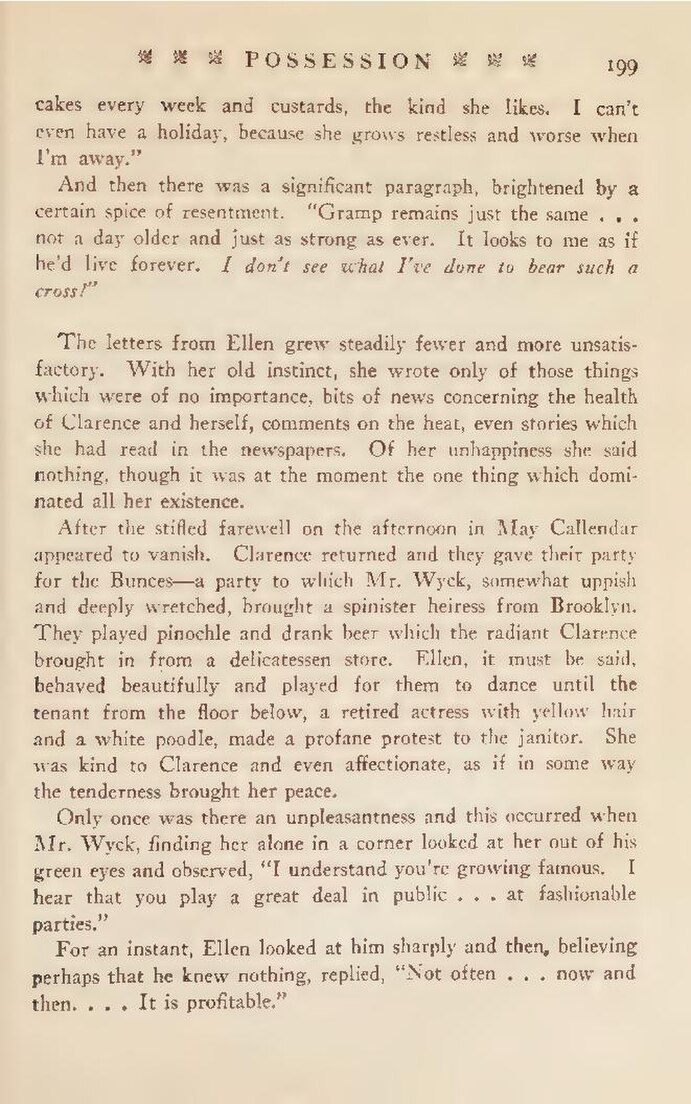cakes every week and custards, the kind she likes. I can't even have a holiday, because she grows restless and worse when I'm away."
And then there was a significant paragraph, brightened by a certain spice of resentment. "Gramp remains just the same . . . not a day older and just as strong as ever. It looks to me as if he'd live forever. I don't see what I've done to bear such a cross!"
The letters from Ellen grew steadily fewer and more unsatisfactory. With her old instinct, she wrote only of those things which were of no importance, bits of news concerning the health of Clarence and herself, comments on the heat, even stories which she had read in the newspapers. Of her unhappiness she said nothing, though it was at the moment the one thing which dominated all her existence.
After the stifled farewell on the afternoon in May Callendar appeared to vanish. Clarence returned and they gave their party for the Bunces—a party to which Mr. Wyck, somewhat uppish and deeply wretched, brought a spinister heiress from Brooklyn. They played pinochle and drank beer which the radiant Clarence brought in from a delicatessen store. Ellen, it must be said, behaved beautifully and played for them to dance until the tenant from the floor below, a retired actress with yellow hair and a white poodle, made a profane protest to the janitor. She was kind to Clarence and even affectionate, as if in some way the tenderness brought her peace.
Only once was there an unpleasantness and this occurred when Mr. Wyck, finding her alone in a corner looked at her out of his green eyes and observed, "I understand you're growing famous. I hear that you play a great deal in public . . . at fashionable parties."
For an instant, Ellen looked at him sharply and then, believing perhaps that he knew nothing, replied, "Not often . . . now and then. . . . It is profitable."
